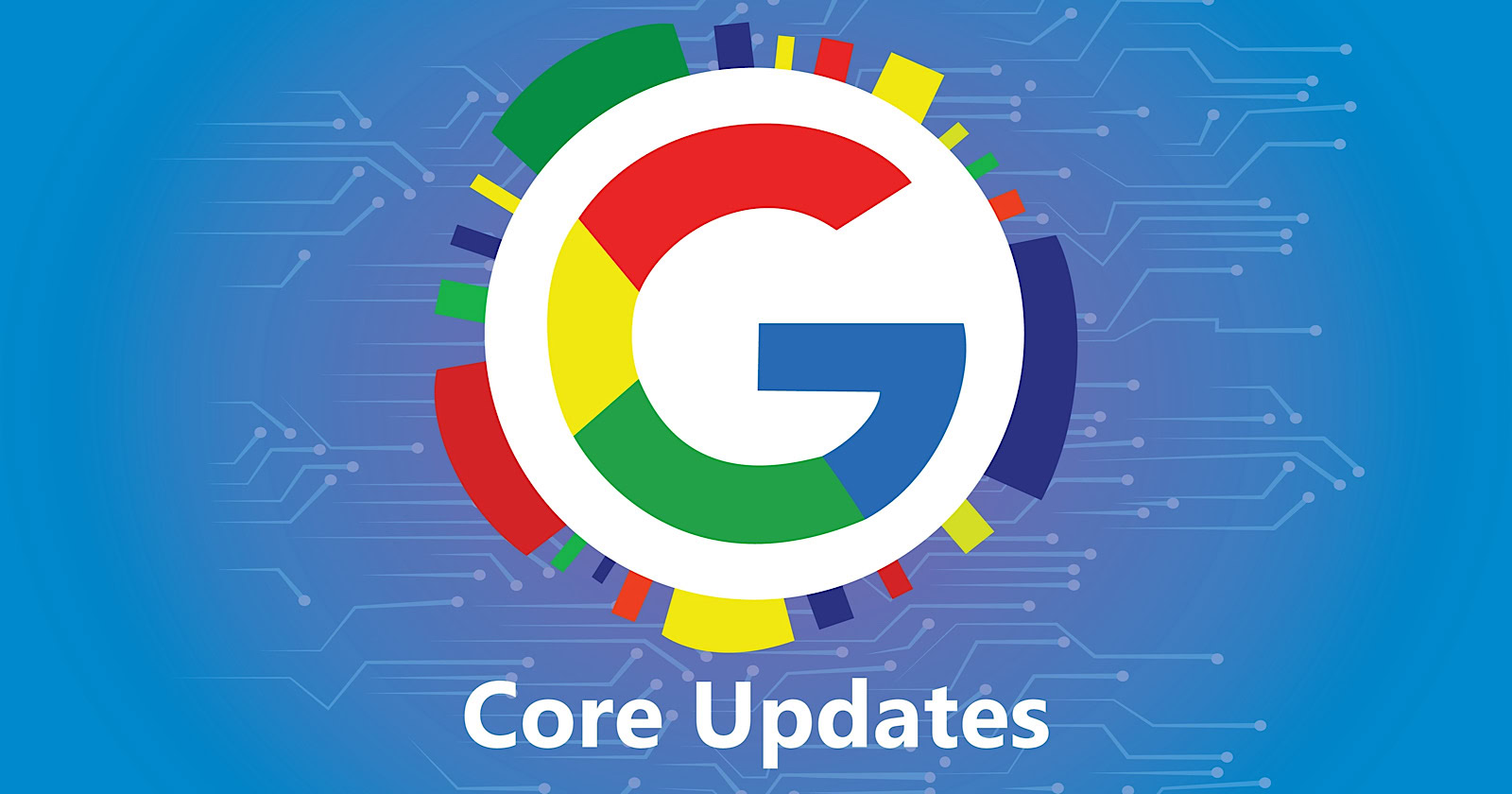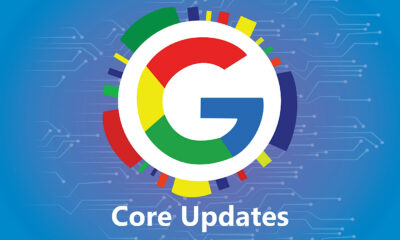SEO
All About the Google March 2024 Core Update

It’s been over two weeks since Google’s March 2024 core update rolled out – and it’s one of the most significant updates I have seen to date. It’s currently sweeping the web in the same way we saw Panda and Penguin updates do more than ten years ago, and all the forums agree: this update is a big deal.
March 2024 Core Update
After reading the official Google announcement, it was very clear that it was very different from past core updates for two reasons.
First: not only did it cover the usual major changes to ranking systems, but it rolled out at the same time brand-new spam policies were announced. Second: it was packaged with a helpful content system.
What this means is Google has updated what it will consider “spam” from sites, and we won’t be seeing any more Helpful Content Updates.
Why the March 2024 Core Update Matters
It’s no secret that Google’s reputation has fallen lately, with many users reporting poor user experience caused by the rising number of AI-generated content clogging up the SERPs.
It’s something that’s been happening for months now, and this likely is why they have decided to package this core update with several others.
Now, I mentioned Panda and Penguin earlier – and if you’ve been in the SEO game for about as long as I have, then you know how significant my statement is.
But if you’re newer to SEO, I’ll summarize. Back when those two updates came out, Google cracked down, hard, on websites. Hundreds upon thousands of websites were penalized and even de-indeed, causing many to lose 100% of their traffic. And this all happened basically overnight.
And something similar is happening now, from what I’ve been seeing on news updates and forums.
The Effects of the March 2024 Core Update So Far
In the days since the Google March 2024 core and spam updates have started rolling out, the SERPs have been busy. We’ve seen significant search ranking volatility, which is partially due to the algorithmic updates, and partially related to Google issuing manual actions connected to the new spam policies.
Note that this update is not over yet. These things usually take a few weeks to roll out – Google themselves said it would take about a month to finish (check their dashboard if you want to see when it finishes.)
Plus, several systems will be updated at the same time. We could see even more volatility in the next two weeks.
Here is a brief timeline of what SEOs and webmasters have been reporting on forums since the launch:
- March 5 to 7 – Official Google announcement regarding manual actions taken for policy violators. Sites also reported that they were delisted from Google’s database.
- March 8 – Sites started seeing the first spikes in search rankings.
- March 10 – Search volatility calmed down temporarily. However, more sites started reporting that they were hit by both algorithmic changes and manual actions. Other sites reported that they saw some reversals (although temporarily).
- March 12 – An independent study by Originality.ai found that 100% of the websites that had a manual action applied had content that was AI-generated.
- March 15-16 – Rising search ranking volatility, which is likely to be connected to the ongoing core and spam update rollout.
- March 18 – Google urges webmasters to have patience as the Google March 2024 core update continues to roll out.
- March 19 – Google says they will collect “specific” feedback once the updates have been fully rolled out, as forums are filled with very unhappy webmasters.
With the overlapping updates and tons of chatter on forums, there’s a lot of confusion going on for SEOs at the moment. Many who have been deranked in the last few days find it hard to keep track of what, exactly, on their website is impacting their rankings.
The New Spam Policies to Consider
While Google will never disclose which ranking factors it’s adjusted in a core update, it will tell us what’s been added to its guidelines and policies.
Here’s what has been added to the spam policies this month:
- Expired domain abuse – Buying and repurposing an expired domain with the intent to manipulate search rankings, piggybacking on the domain’s age and authority.
- Scaled content abuse – Mass-generating content and pages for the primary purpose of manipulating search rankings, resulting in tons of unoriginal, low-quality, and unhelpful content. And yes, this is considered abuse whether or not you use AI or similar tools to do it.
- Site reputation abuse – Publishing third-party pages without your oversight or involvement, allowing these parties to take advantage of your ranking signals and rank higher on the search results.
This update aims to crack down on PBNs (private blog networks), AI-generated content, Parasite SEO, and other gray- and black-hat practices that benefit from cheap and dirty tactics to climb the search results.
What Can You Do to Recover From a Google Update?
The answer to this always lies in what the update tries to fix. In this case, we can see the core update and new spam policies are meant to punish sites that don’t create helpful content, and rely on spamm-y practices to rank high.
So, if you’re doing that, you should stop immediately and audit your website to remove any offending content or pages. Refocus your strategy on building quality content that centers user experience, and follows white-hat link-building and authority-building tactics.
If you have never relied on spam or mass-generated content, but find your website has been hit anyways, then it’s time to go back to basics and audit your website top-to-bottom. I recently finished a 4-part SEO checklist for 2024 you can follow for this. This other guide on how to fix your site after a manual action can help you if you find you we’re one of the unlucky ones affected by this update.
Do I Need to Avoid Publishing Too Much Content at Once?
I know that the statements from Google and this article both use the term “mass-generated,” so you might be asking yourself this question right now.
But here’s the thing: the issue isn’t how often you publish your content. It’s how the content you’re publishing is made.
In my experience, publishing 2-3 times a week doesn’t negatively impact a website, so long as the posts themselves follow the usual E-E-A-T and Helpful Content guidelines.
John Mueller also addressed this concern by stating:
“Content is generally not considered spam just from the way that you publish it. Some sites switch on a big batch of awesome content, and awesome is awesome. Some sites publish small amounts of junk, and well, it’s junk not because of how it’s published.”
Keep that in mind if you’re rethinking your content strategy in light of this update.
Key Takeaway
Google’s March 2024 core update shows their stance: quality trumps quantity. Creating links and content at scale will hurt you in the long run if it’s done wrong.
Websites need to avoid depending heavily on thin or duplicated content, or easy and quick backlinks. These will only slightly benefit your website for a short while until Google once again rolls out with a new update.
So focus on content quality, audit your website regularly, and always aim to enhance user experience to mitigate (and even benefit from) the effects of this core update, and any update to come.
SEO
Google March 2024 Core Update Officially Completed A Week Ago

Google has officially completed its March 2024 Core Update, ending over a month of ranking volatility across the web.
However, Google didn’t confirm the rollout’s conclusion on its data anomaly page until April 26—a whole week after the update was completed on April 19.
Many in the SEO community had been speculating for days about whether the turbulent update had wrapped up.
The delayed transparency exemplifies Google’s communication issues with publishers and the need for clarity during core updates
Google March 2024 Core Update Timeline & Status
First announced on March 5, the core algorithm update is complete as of April 19. It took 45 days to complete.
Unlike more routine core refreshes, Google warned this one was more complex.
Google’s documentation reads:
“As this is a complex update, the rollout may take up to a month. It’s likely there will be more fluctuations in rankings than with a regular core update, as different systems get fully updated and reinforce each other.”
The aftershocks were tangible, with some websites reporting losses of over 60% of their organic search traffic, according to data from industry observers.
The ripple effects also led to the deindexing of hundreds of sites that were allegedly violating Google’s guidelines.
Addressing Manipulation Attempts
In its official guidance, Google highlighted the criteria it looks for when targeting link spam and manipulation attempts:
- Creating “low-value content” purely to garner manipulative links and inflate rankings.
- Links intended to boost sites’ rankings artificially, including manipulative outgoing links.
- The “repurposing” of expired domains with radically different content to game search visibility.
The updated guidelines warn:
“Any links that are intended to manipulate rankings in Google Search results may be considered link spam. This includes any behavior that manipulates links to your site or outgoing links from your site.”
John Mueller, a Search Advocate at Google, responded to the turbulence by advising publishers not to make rash changes while the core update was ongoing.
However, he suggested sites could proactively fix issues like unnatural paid links.
“If you have noticed things that are worth improving on your site, I’d go ahead and get things done. The idea is not to make changes just for search engines, right? Your users will be happy if you can make things better even if search engines haven’t updated their view of your site yet.”
Emphasizing Quality Over Links
The core update made notable changes to how Google ranks websites.
Most significantly, Google reduced the importance of links in determining a website’s ranking.
In contrast to the description of links as “an important factor in determining relevancy,” Google’s updated spam policies stripped away the “important” designation, simply calling links “a factor.”
This change aligns with Google’s Gary Illyes’ statements that links aren’t among the top three most influential ranking signals.
Instead, Google is giving more weight to quality, credibility, and substantive content.
Consequently, long-running campaigns favoring low-quality link acquisition and keyword optimizations have been demoted.
With the update complete, SEOs and publishers are left to audit their strategies and websites to ensure alignment with Google’s new perspective on ranking.
Core Update Feedback
Google has opened a ranking feedback form related to this core update.
You can use this form until May 31 to provide feedback to Google’s Search team about any issues noticed after the core update.
While the feedback provided won’t be used to make changes for specific queries or websites, Google says it may help inform general improvements to its search ranking systems for future updates.
Google also updated its help documentation on “Debugging drops in Google Search traffic” to help people understand ranking changes after a core update.
Featured Image: Rohit-Tripathi/Shutterstock
FAQ
After the update, what steps should websites take to align with Google’s new ranking criteria?
After Google’s March 2024 Core Update, websites should:
- Improve the quality, trustworthiness, and depth of their website content.
- Stop heavily focusing on getting as many links as possible and prioritize relevant, high-quality links instead.
- Fix any shady or spam-like SEO tactics on their sites.
- Carefully review their SEO strategies to ensure they follow Google’s new guidelines.
SEO
Google Declares It The “Gemini Era” As Revenue Grows 15%

Alphabet Inc., Google’s parent company, announced its first quarter 2024 financial results today.
While Google reported double-digit growth in key revenue areas, the focus was on its AI developments, dubbed the “Gemini era” by CEO Sundar Pichai.
The Numbers: 15% Revenue Growth, Operating Margins Expand
Alphabet reported Q1 revenues of $80.5 billion, a 15% increase year-over-year, exceeding Wall Street’s projections.
Net income was $23.7 billion, with diluted earnings per share of $1.89. Operating margins expanded to 32%, up from 25% in the prior year.
Ruth Porat, Alphabet’s President and CFO, stated:
“Our strong financial results reflect revenue strength across the company and ongoing efforts to durably reengineer our cost base.”
Google’s core advertising units, such as Search and YouTube, drove growth. Google advertising revenues hit $61.7 billion for the quarter.
The Cloud division also maintained momentum, with revenues of $9.6 billion, up 28% year-over-year.
Pichai highlighted that YouTube and Cloud are expected to exit 2024 at a combined $100 billion annual revenue run rate.
Generative AI Integration in Search
Google experimented with AI-powered features in Search Labs before recently introducing AI overviews into the main search results page.
Regarding the gradual rollout, Pichai states:
“We are being measured in how we do this, focusing on areas where gen AI can improve the Search experience, while also prioritizing traffic to websites and merchants.”
Pichai reports that Google’s generative AI features have answered over a billion queries already:
“We’ve already served billions of queries with our generative AI features. It’s enabling people to access new information, to ask questions in new ways, and to ask more complex questions.”
Google reports increased Search usage and user satisfaction among those interacting with the new AI overview results.
The company also highlighted its “Circle to Search” feature on Android, which allows users to circle objects on their screen or in videos to get instant AI-powered answers via Google Lens.
Reorganizing For The “Gemini Era”
As part of the AI roadmap, Alphabet is consolidating all teams building AI models under the Google DeepMind umbrella.
Pichai revealed that, through hardware and software improvements, the company has reduced machine costs associated with its generative AI search results by 80% over the past year.
He states:
“Our data centers are some of the most high-performing, secure, reliable and efficient in the world. We’ve developed new AI models and algorithms that are more than one hundred times more efficient than they were 18 months ago.
How Will Google Make Money With AI?
Alphabet sees opportunities to monetize AI through its advertising products, Cloud offerings, and subscription services.
Google is integrating Gemini into ad products like Performance Max. The company’s Cloud division is bringing “the best of Google AI” to enterprise customers worldwide.
Google One, the company’s subscription service, surpassed 100 million paid subscribers in Q1 and introduced a new premium plan featuring advanced generative AI capabilities powered by Gemini models.
Future Outlook
Pichai outlined six key advantages positioning Alphabet to lead the “next wave of AI innovation”:
- Research leadership in AI breakthroughs like the multimodal Gemini model
- Robust AI infrastructure and custom TPU chips
- Integrating generative AI into Search to enhance the user experience
- A global product footprint reaching billions
- Streamlined teams and improved execution velocity
- Multiple revenue streams to monetize AI through advertising and cloud
With upcoming events like Google I/O and Google Marketing Live, the company is expected to share further updates on its AI initiatives and product roadmap.
Featured Image: Sergei Elagin/Shutterstock
SEO
brightonSEO Live Blog

Hello everyone. It’s April again, so I’m back in Brighton for another two days of Being the introvert I am, my idea of fun isn’t hanging around our booth all day explaining we’ve run out of t-shirts (seriously, you need to be fast if you want swag!). So I decided to do something useful and live-blog the event instead.
Follow below for talk takeaways and (very) mildly humorous commentary. sun, sea, and SEO!
-

 WORDPRESS7 days ago
WORDPRESS7 days ago7 Best WooCommerce Points and Rewards Plugins (Free & Paid)
-

 MARKETING7 days ago
MARKETING7 days agoBattling for Attention in the 2024 Election Year Media Frenzy
-

 WORDPRESS6 days ago
WORDPRESS6 days ago13 Best HubSpot Alternatives for 2024 (Free + Paid)
-

 MARKETING6 days ago
MARKETING6 days agoAdvertising in local markets: A playbook for success
-

 SEO7 days ago
SEO7 days agoGoogle Answers Whether Having Two Sites Affects Rankings
-

 SEARCHENGINES6 days ago
SEARCHENGINES6 days agoGoogle Core Update Flux, AdSense Ad Intent, California Link Tax & More
-

 AFFILIATE MARKETING7 days ago
AFFILIATE MARKETING7 days agoGrab Microsoft Project Professional 2021 for $20 During This Flash Sale
-

 PPC4 days ago
PPC4 days ago10 Most Effective Franchise Marketing Strategies




![The Current State of Google’s Search Generative Experience [What It Means for SEO in 2024] person typing on laptop with](https://articles.entireweb.com/wp-content/uploads/2024/04/The-Current-State-of-Googles-Search-Generative-Experience-What-It.webp-400x240.webp)
![The Current State of Google’s Search Generative Experience [What It Means for SEO in 2024] person typing on laptop with](https://articles.entireweb.com/wp-content/uploads/2024/04/The-Current-State-of-Googles-Search-Generative-Experience-What-It.webp-80x80.webp)









